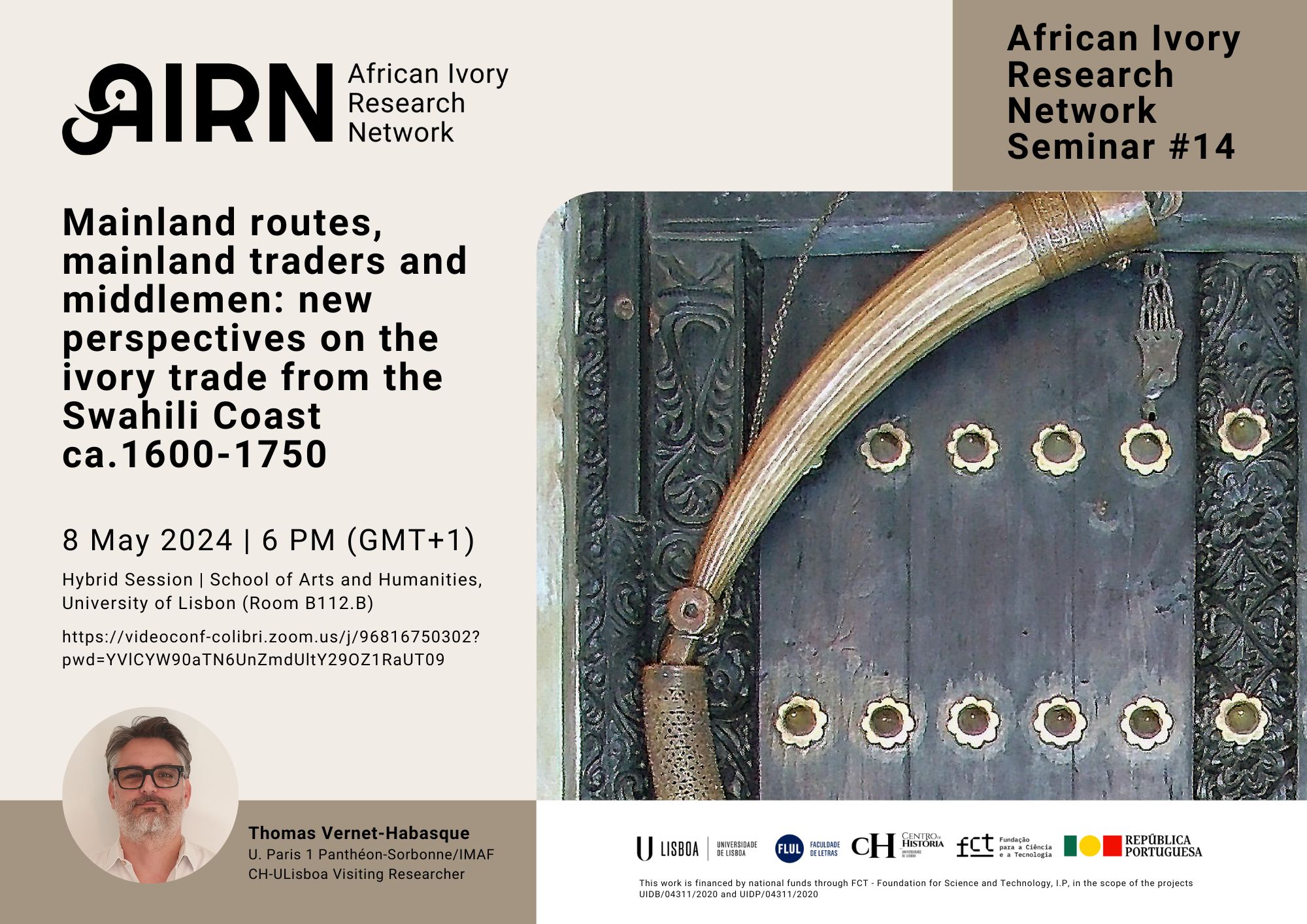AIRN Seminar #14
Mainland routes, mainland traders and middlemen: new perspectives on the ivory trade from the Swahili Coast ca.1600-1750
Thomas Vernet-Habasque (Université Paris 1 Panthéon-Sorbonne/IMAF and CH-ULisboa Visiting Researcher)
May 8, 2024 | Online | 6 PM (GMT+1)
Organization | African Ivory Research Network & Centre for History of the University of Lisbon
Zoom Meeting | https://videoconf-colibri.zoom.us/j/96816750302?pwd=YVlCYW90aTN6UnZmdUltY29OZ1RaUT09
ID: 968 1675 0302 | Password: airn2023
Descarregar cartaz

Abstract: The ivory trade was probably the most important trade from the Swahili Coast during the seventeenth and eighteenth centuries. In particular it became vital to the Portuguese Empire. Ivory was mainly exported to Gujarat and north-western India, often through complex partnerships between Swahili, Portuguese and Gujarati traders and brokers. This communication aims to reverse the common Indian Ocean-centric perspectives on trade by focusing on the mainland actors of this trade. Research on the Portuguese archives highlights the very active role of some mainland, non-Muslim, communities in the ivory trade, particularly in Mombasa. Mainland groups hunt the elephants, but they also opened routes to the coast, others were middlemen between the coast and the hinterland, and all were key actors with which the powers of the coast had to negotiate. Far from being peripheral, dominated, actors of the Indian Ocean ivory trade, most mainland communities had the capacity to defend their interests and sometimes became central at key moments of early modern Swahili history.
Bio: Thomas Vernet-Habasque is associate professor of medieval and early modern African history at Université Paris 1 Panthéon-Sorbonne and a member of the Institut des Mondes Africains (IMAF). His research focuses on the Swahili world and East Africa and the Indian Ocean before the 1820’s. Between 2016 and 2019, he was director of IFAS-Recherche (French Institute of South-Africa-Research), Johannesburg, a joint research unit between CNRS and French Ministry of Foreign Affairs. Currently he is editor in chief of Afriques. Débats, méthodes et terrains d’histoire, an online international peer-reviewed journal devoted to the history and archaeology of Africa before the 20th century. He is also director of the MA program “Histoire de l’Afrique, du Maghreb et du Moyen-Orient” hosted by the history department of Université Paris 1 Panthéon-Sorbonne. His research focuses on the Swahili world and East Africa and the Indian Ocean before the 1820’s. His main areas of research are social history and the building of hierarchization, dependence and slavery, trade, and literacy. His tries to apprehend past Swahili communities from multiple perspectives, notably not only from the Indian Ocean but also from the mainland.

